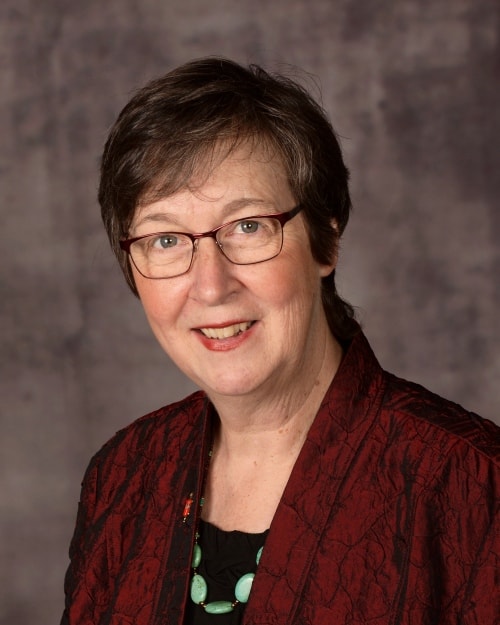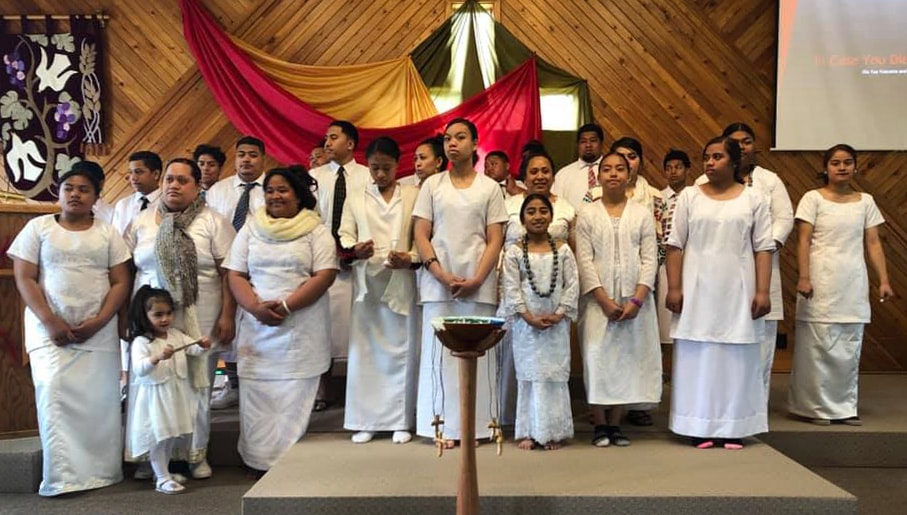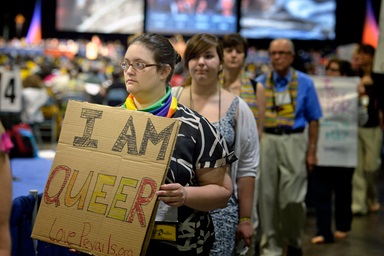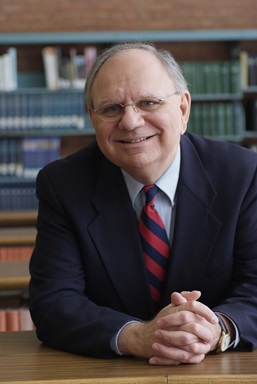The long tradition of Alaska having its own missionary conference of The United Methodist Church may be nearing an end.
The Future Visions Task Force of the Alaska United Methodist Conference recommended earlier this month that the conference become instead a missionary district within the Pacific Northwest Conference, which has headquarters near Seattle.
Factors included concerns about finances and the ability of a missionary conference to control its future in an uncertain time for the denomination, task force members said.
Great Northwest Area Bishop Elaine Stanovsky said she would soon call a special session of the Alaska United Methodist Conference to vote on petitioning the 2020 General Conference to approve the move from missionary conference status.

Bishop Elaine Stanovsky
Photo courtesy of the Council of Bishops
Photo courtesy of the Council of Bishops
Her area includes Alaska as well as the Oregon-Idaho Conference and Pacific Northwest Conference. She noted the Alaska United Methodist Conference has ties with both.
“I don’t presume to guess what the Western Jurisdiction might recommend and act on,” Stanovsky said.
The Book of Discipline, thanks to a petition submitted by the Alaska United Methodist Conference and approved by the 2016 General Conference, allows bishops to designate a district as a missionary district.
If Alaskan United Methodists clear the obstacle course of United Methodist polity and make the transition to missionary district, that would be a first for the denomination, Stanovsky said.
The bishop said discussion about the best organizational status for the Alaska United Methodist Conference has gone on for years but intensified recently, given reduced financial support and uncertainty about the denomination’s future.
By remaining a missionary conference, Alaska “could get lost in the bigger currents,” she said.
Lonnie Brooks served on the task force, and concluded a change was needed and probably inevitable.
“It seemed to me that it was more and more likely that Alaska would not be sustainable as an independent conference very far into the future,” said Brooks, former lay leader of the conference.
The United Methodist Book of Discipline says: “A conference is a missionary conference because of its particular mission opportunities, its limited membership and resources, its unique leadership requirements, its strategic regional or language considerations, and ministerial needs.”
Missionary conferences draw financial and clergy support from across the church. The Alaska conference’s clergy come from 16 annual conferences and four other denominations, Stanovsky said.
There are just three missionary conferences in the U.S. — Oklahoma Indian Missionary Conference, Red Bird Missionary Conference in southeast Kentucky — and Alaska.
Methodist missionary work in Alaska dates to the late 19th century. The Alaska Missionary Conference formed in 1972 and later was renamed the Alaska United Methodist Conference, but retained its missionary conference status.
The conference has 27 local churches, two fellowships and one church start, representing about 3,000 members, said the Rev. Carlo Rapanut, superintendent. Ministry with Native peoples is part of the conference’s character, as is connectionalism.
“We’re one church with 30 doors,” Rapanut said. “It’s really operating as a small system, almost as a multi-site parish.”
Rapanut and Stanovsky said the missional impact of the numerically small conference is significant.
“Our churches have essential roles in social safety nets in most of the communities we have churches in,” Stanovsky said.
But the conference has been strained financially, in part due to the cost of doing ministry over such a vast area.
The United Methodist Board of Global Ministries is charged under the Discipline with supporting missionary conferences financially and administratively. But the agency’s top executive, Thomas Kemper, said the original idea was for missionary conferences to grow into annual conferences. Supporting missionary conferences indefinitely was not the vision, he said.
Global Ministries has been reducing funding for the Alaska United Methodist Conference, and direct support for operations is to end in 2020.
Kemper said the mission agency still would provide grant opportunities, as well as Global Mission Fellows. He applauded the plan to become a missionary district.
“I’m very proud Alaska is taking this step, and I’m very happy we can do this in a collaborative way,” he said.
As a missionary district, Alaska would still be eligible for financial and clergy support from across the denomination. There might also be cost savings in coming under an annual conference.
Along with money considerations, the 2019 General Conference’s approving of the Traditional Plan was a factor in the task force’s recommendation, Brooks said.
That plan — which passed by a 438 to 384 vote — reinforced official church bans against same-sex weddings and ordination of “self-avowed practicing” gay clergy.
Resistance to the Traditional Plan’s passage has been strong, and some petitions to the 2020 General Conference call for a breakup of The United Methodist Church into two or more denominations.
“A crisis is approaching at GC20 that could well end up in some sort of division of the church,” Brooks said. “In such an event we also know that as a missionary conference we would have either no voice in our own fate or very little voice, since General Conference is primarily in control of the creation and the dissolution of missionary conferences.”
The 2020 General Conference is set for May 5-15 in Minneapolis, and the petition submission deadline has long passed. But the Book of Discipline grants an exception for petitions coming out of conference gatherings that occur beyond the deadline.
“My intention is to call a special session, probably in February, certainly no later than early March,” Stanovsky said.
Subscribe to our
e-newsletter
Like what you're reading and want to see more? Sign up for our free daily and weekly digests of important news and events in the life of The United Methodist Church.
What about the other two missionary conferences in the U.S.?
“The Red Bird Missionary Conference is and will continue to be a viable and necessary mission within the bounds of Kentucky,” said Bishop Leonard Fairley, who oversees the Kentucky and Red Bird conferences.
Fairley added, “We are presently in dialogue with the people of Central Appalachia about what that will look like.”
The bishop did not want to speak in detail before a series of roundtable meetings scheduled for March.
“We will seek and share guidance about next steps,” he said. “Currently Red Bird continues to be able to carry out its works even with cuts in funding. Red Bird has a wonderful history of serving the people of Central Appalachia.”
The Rev. David Wilson is superintendent of the Oklahoma Indian Missionary Conference. He said the conference’s ministry with Native people of many tribes, across Oklahoma and beyond, gives it a special identity.
He said there are no plans to change from missionary conference status, with members having a strong commitment to remaining together and autonomous.
Wilson added: “Who knows what’s going to happen after (General Conference) 2020?”
Hodges is a Dallas-based writer for United Methodist News. Contact him at 615-742-5470 or newsdesk@umcom.org. To read more United Methodist news, subscribe to the free Daily or Weekly Digests.
Like what you're reading? Support the ministry of UM News! Your support ensures the latest denominational news, dynamic stories and informative articles will continue to connect our global community. Make a tax-deductible donation at ResourceUMC.org/GiveUMCom.



